ISD celebrates 25 years of success with a new strategy in place
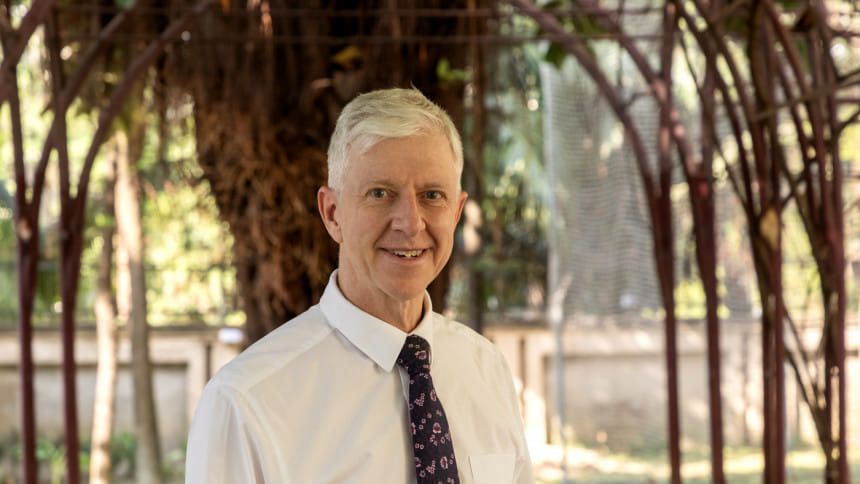
International School Dhaka (ISD), one of the pioneering International Baccalaureate (IB) schools in Bangladesh, is celebrating its 25th anniversary. On this occasion, Rising Stars sat down with Steve Calland-Scoble, the Director of ISD and an accomplished educator, to talk about the school and its plans going forward.
Rising Stars (RS): Could you please share some of the most significant achievements of ISD over the past 25 years?
Steve Calland-Scoble (S): ISD has had many accomplishments. It was the first IB continuum school in Bangladesh and has a long tradition of offering unique programmes that were groundbreaking for their time. Moreover, our diploma programme results are very strong, and almost a hundred percent of our students go on to pursue higher education in different countries. We have a track record of academic success and of placing students in great universities. Our alumni group is also very strong; some very highly qualified entrepreneurs, engineers, etc. have graduated from ISD and they now appreciate the education they received here. Over the last 25 years, we have built up amazing programmes, facilities, resources, and, most importantly, a reputation that goes beyond Dhaka. ISD is known on an international stage.
RS: ISD has a rich heritage of offering the IB curriculum in Bangladesh for over two decades. Could you elaborate on the advantages of the IB curriculum for students at ISD and how it prepares them to become global citizens?
S: I think the IB curriculum lets students have some agency over how they develop. From an early age, they learn from a very broad range of subjects to see what they are strong at, where their interests lie, and what they are passionate about. As they go through the programme, they can begin specialising in areas that interest them. In doing so, they find relevance. The students can also relate learning to real-life experiences. We try to bring real life into the classroom and go outside the classroom to learn about real-life as well. It is not a traditional, factory model of learning but is based on knowledge and context. Our students learn how to analyse and organise data and develop skills that help them when they pursue higher education. Successful students in the diploma programme do better in their degree programmes, get into better universities, and go into better and more high-paying professions.
We use multiple methods of learning. Research and inquiry are central to our curriculum, as is finding a balance between academic and personal development. For example, we teach our students to contribute as world citizens through various community service activities and also have a wonderful array of after-school activities that include sporting, cultural activities, and so on. We cater to a wide range of student interests, both inside and outside the classroom. The IB curriculum adopts a holistic approach to education to foster well-roundedness in our students.
RS: There is a large number of international faculty members and students at ISD. How does the diverse international community at the school contribute to the learning experience of students from various backgrounds?
S: With teachers coming from about 20 countries and students coming from 33 different countries, we are truly an international school. The cultural exchange that results from this mix encourages not just tolerance but appreciation of different cultures amongst our students. They become more aware of global issues. Staying connected to the world is a quality we try to cultivate in our students. When you have friends and teachers from different countries, you have a greater capacity to adapt, a skill that is vital when you go on to attend higher education in multicultural societies like the US or Australia. Our international faculty comprises educators who not only come from different locations but have also taught in many different countries. They bring in diverse experiences and perspectives as a result.
RS: How does ISD stay aligned with trends in global education? And what role does international collaboration play in enhancing educational outcomes for your students?
S: We are connected to many global activities. Our students, for example, participated in a Model United Nations conference last year in Singapore and went overseas on a "Week Without Walls" programme to engage in practical learning. ISD is connected with many other international schools, so our students can interact with their students and engage in conversations about global affairs. Our students learn about global issues through the curriculum itself as well as in the form of various programmes. Global dimensions are embraced in all subjects, and ours is a truly global curriculum. Our teachers are trained by instructors from different parts of the world. We draw upon international expertise to ensure our teachers are highly skilled in the curriculum they are teaching. We also run some programmes, like the Barca Academy and Carnegie Mellon Robotics Academy, with international collaborators. These and other overseas learning opportunities allow our students to learn about their unique place in the world.
RS: In what ways does ISD engage with the local community alongside international partners to enrich the educational experience for its students?
S: ISD is serving Bangladesh and its educational needs. Bangladeshis are the largest nationality group in our student body, and we celebrate all of the national events. At ISD, we show respect to and embrace Bangali culture. We bring in the best resources from the country and do service programs for the local community. For example, during the recent flooding, we did a large donation drive, and our students hand-delivered the relief items to victims in Cumilla. We also do some corporate collaborations with local businesses to help our students learn in a hands-on environment and have local authors visit us every year to talk to the students. Bangla is offered throughout the school as both a first and second language because we want to make our students proficiently bilingual. Bilingualism, as research shows, helps students think critically, giving them an advantage when they go out into the wider world. ISD also does not put a cap on the number of host-nation families at the school. One of the highlights of being a foreigner in Bangladesh is experiencing the Bangali culture, and we want to incorporate that culture into the school.
RS: ISD is adopting a new strategy. With the new strategy in place, what initiatives or changes can we expect from the school in the coming years to enhance student learning and engagement?
S: We have some long-term, strategic goals. We want ISD to mirror all the qualities we think are important in an international school. A new rebranded website is being developed, and we are trying to build a larger social media presence so that we can show some of the great things we are doing. Improvements are also being made to some of our programmes. We have programmes in robotics coming in, and we have to invest substantially in robotics competitions because we want to foster more expertise amongst our students to make them top competitors in Asia. The introduction of new school subjects, particularly mother tongue languages to fulfil the language needs of our international students is also being looked into. We are also expanding our after-school activities and opening up more opportunities as well. For example, we are opening a new swimming academy. Our facilities are being upgraded, and we are replacing our current playground with a hybrid, dynamic playground.
We want to make ISD one of the best schools in South Asia, so we have to do a lot of work to build on the successes of the past 25 years.

 For all latest news, follow The Daily Star's Google News channel.
For all latest news, follow The Daily Star's Google News channel. 

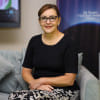
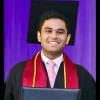
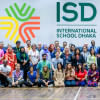
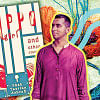



Comments